- Home
- The school
- Curriculum
- Accolades
- Events
- Testimonials
- Careers
- Contact Us

Scholastic Programme
Board and Curriculum
Teaching students how to learn is just as important as teaching them what to learn. We encourage our students to think for themselves, ask questions, and pursue their interests through independent reading and research. The curriculum is regularly updated to stimulate students’ interests and equip them with the knowledge necessary to compete in the fast-changing 21st-century global world. Teachers make the classes interactive and use various methods to bring out the best in each student. Collaborative learning is incorporated into lessons, allowing students to share ideas and learn from each other. Students engage in experiential learning through a variety of resources. Visual arts, music, dance, drama, and physical education are additional curricular offerings available to all students. The schooling experience includes numerous enrichment activities, such as outbound trips and exchanges with other schools
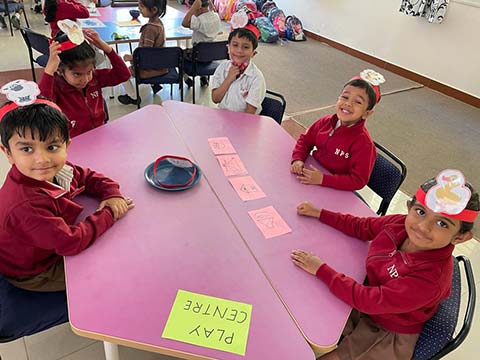
Early Years
Early childhood programs include Montessori and Kindergarten.
Montessori
Montessori education starts when children are three years old and continues for three years until they transition to Class 1. Founded in 1907 by Dr. Maria Montessori, this method is centered on self-directed activities, hands-on learning, and collaboration.
Each Montessori setting adheres to the principle of mixed-age groups, fostering a strong sense of community through peer learning and interaction. The 'specially prepared environments' enable children to move freely and select from a range of developmentally appropriate activities under the guidance of trained adults.
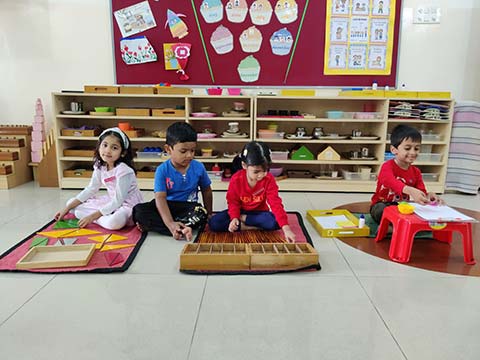
Kindergarten
Children enter Kindergarten at the age of four and continue for two years until Class 1. It fosters holistic development crucial for ongoing success in school within student-centered environments. Children engage in activities integrating arts, crafts, storytelling, and play to explore various concepts in language, mathematics, and sciences. Kindergarten acknowledges the social aspect of learning, encouraging children to collaborate not only in small groups but also as a whole class. Each Kindergarten class is supported by two teachers, for an optimal student-teacher ratio.
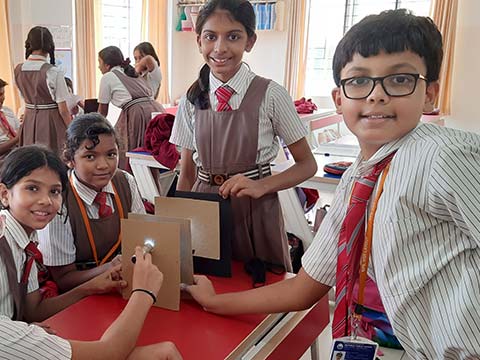
Primary Years
At NPS, we offer an integrated, interdisciplinary curriculum for Primary school students. Our academically rigorous approach combines creative arts with traditional subjects, engaging students physically, cognitively, and emotionally.
We are dedicated to facilitating a productive learning experience by employing activity-oriented lessons, hands-on activities, and a wide array of co-curricular pursuits.
Throughout their journey in the Primary School, we gradually expose students to an integrated knowledge framework while emphasizing proficiency in core subjects like English, Mathematics, General Science, and Social Science
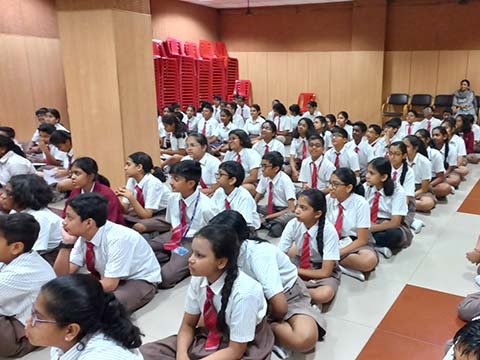
Middle Years
In Middle School, students follow a comprehensive curriculum with a special emphasis on core subjects, which broadens their academic scope. Highly qualified and trained specialist teachers guide Middle School students in developing a strong foundation in English, Mathematics, Computer Science, Hindi, General Science, and Social Studies.
Starting in Class 5, Sanskrit and French are introduced as third languages. By Class 6, Mathematics is divided into Math-I and Math-II, General Science transitions into Physics, Chemistry, and Biology, and Social Studies becomes more focused through History-Civics and Geography. English, Hindi, Sanskrit, Kannada and Computer Science continue to be part of the program.
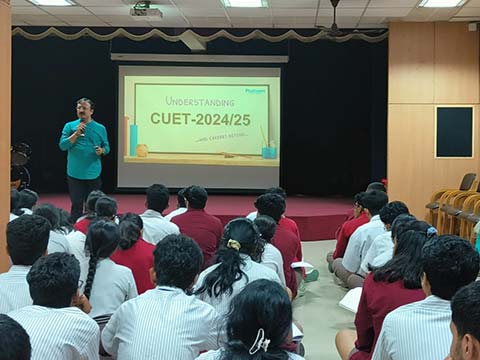
Secondary and Senior Years
In the Secondary and Senior Years, students transition towards independent learning. Education extends beyond textbooks, integrating projects, multimedia presentations, group work, and collaborative learning experiences. For Classes 9 and 10, the curriculum comprises English, Hindi or French, Sanskrit, General Science, Social Science, and Mathematics.
In Class 11, students have the option to choose from various streams:
- The Science stream offers English Core (Compulsory), Physics, Chemistry, Mathematics, and Computer Science / Biology / Economics. Alternatively, students may select Physics, Chemistry, Biology, along with Psychology.
- The Commerce stream includes English Core (Compulsory), Business Studies, Economics, Accountancy, and Applied Math/ Entrepreneurship.
- The Humanities stream encompasses English Core (Compulsory), History, Economics, Psychology, and Entrepreneurship.
Address:
NATIONAL PUBLIC SCHOOL
32/ P2, 17th B Main
Sector 4, HSR Layout
Bangalore 560102
India Phone: +91 80 - 2572 9406 / 07 / 08
Email: info@npshsr.com
Fax: +91 80 2572 9409
NATIONAL PUBLIC SCHOOL
32/ P2, 17th B Main
Sector 4, HSR Layout
Bangalore 560102
India Phone: +91 80 - 2572 9406 / 07 / 08
Email: info@npshsr.com
Fax: +91 80 2572 9409
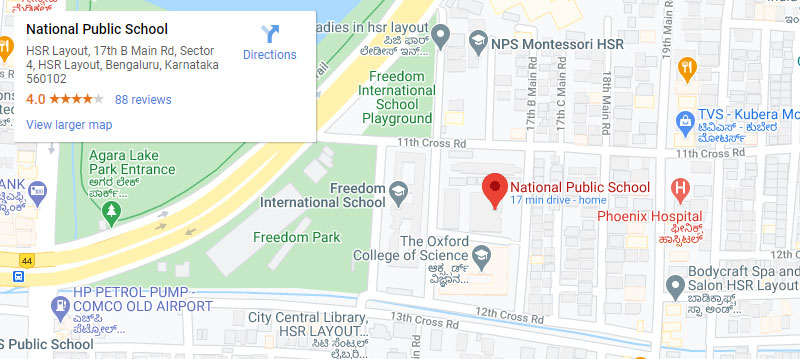
© Copyright 2017 - 2023 by NPS HSR. All Rights Reserved.
Designed by The Scribble

